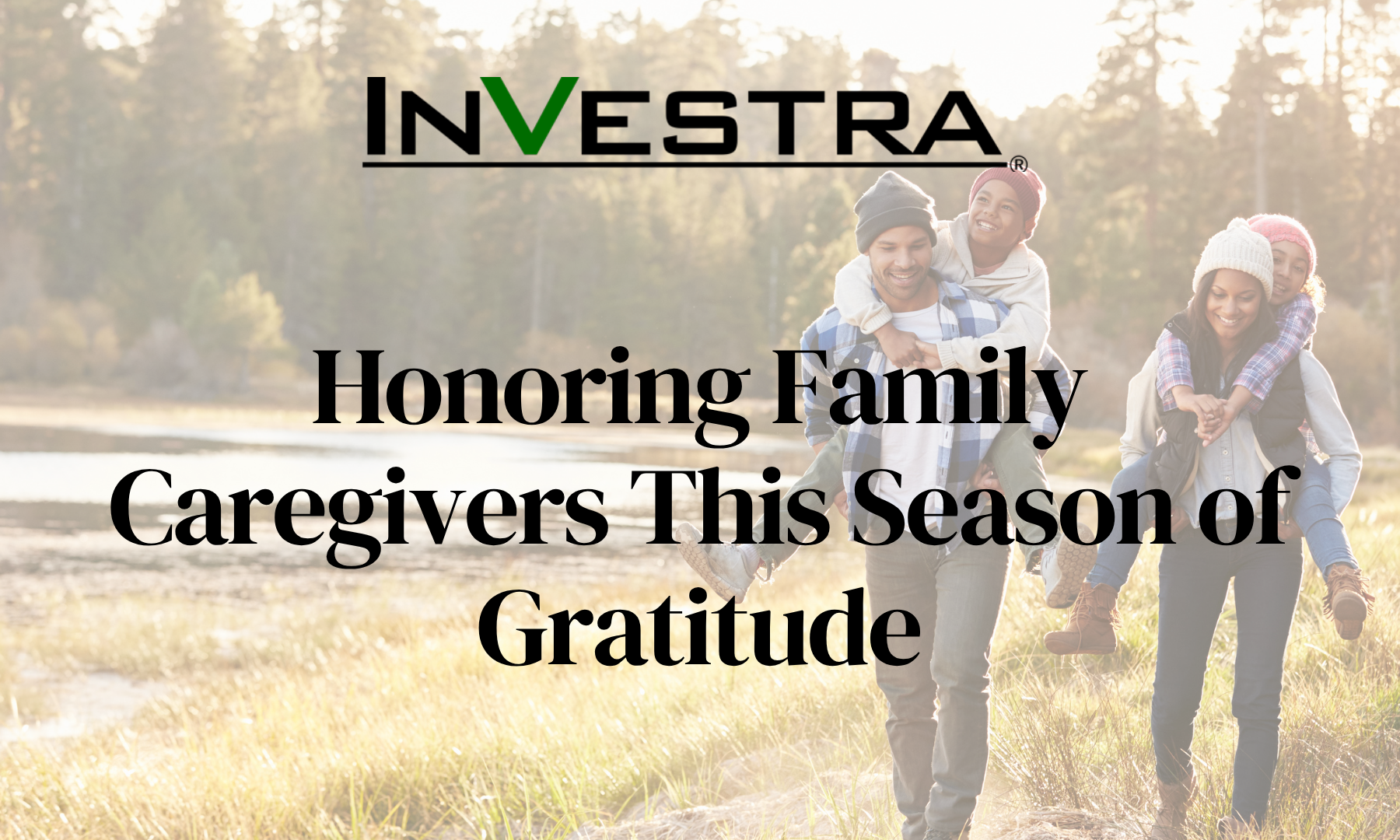The holiday season is a time to reflect on what matters most: family, community, and the people who make our lives better. Among those deserving recognition are family caregivers — individuals who provide care for aging parents, spouses, or loved ones, often balancing these responsibilities alongside work, parenting, and personal obligations.
Family caregiving is an act of love, but it comes with financial, emotional, and logistical challenges. This season of gratitude is the perfect time to honor these caregivers while also considering strategies to support their wellbeing and financial security.
- The Scale of Family Caregiving
- Over 1 in 5 adults in the U.S. are currently acting as family caregivers.
- Many provide care for years, juggling appointments, daily routines, and household management.
- Women often shoulder a disproportionate share of caregiving duties, highlighting the need for tailored planning and support.
Recognizing the scale of caregiving can help families understand its impact — not just on those receiving care, but on caregivers themselves.
- Gratitude Goes Beyond Words
While a “thank you” is meaningful, tangible support can make a difference:
- Offering financial guidance or planning resources to help caregivers manage costs.
- Encouraging breaks, respite care, or support groups to protect their own wellbeing.
- Providing tools and strategies to integrate caregiving responsibilities with long-term financial goals.
- Planning Ahead Eases the Burden
Many caregivers face stress when long-term care or unexpected medical needs arise. Thoughtful planning can help families:
- Preserve assets while covering care costs.
- Make informed decisions about insurance and funding strategies.
- Reduce stress by having clear plans in place before a crisis occurs.
The holiday season is an ideal time to start these conversations, framed by care, empathy, and gratitude.
- Showing Appreciation Strategically
For families working with a financial advisor, this can be an opportunity to:
- Review how caregiving responsibilities impact retirement and estate planning.
- Explore options such as long-term care insurance, trusts, or other protective strategies.
- Ensure caregivers’ own financial security isn’t compromised while supporting loved ones.
Conclusion
This season of gratitude is about honoring the people who give so much of themselves. Family caregivers play a vital role in preserving the health, happiness, and financial stability of those they care for.
At InVestra, we help families approach these challenges with clarity and strategy — so caregivers can focus on what matters most: spending time with loved ones and feeling supported both emotionally and financially.






